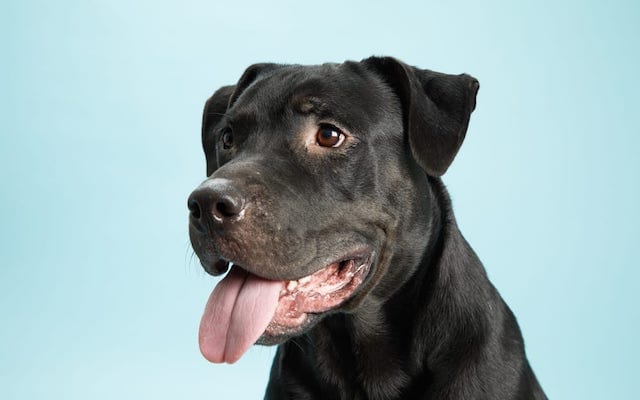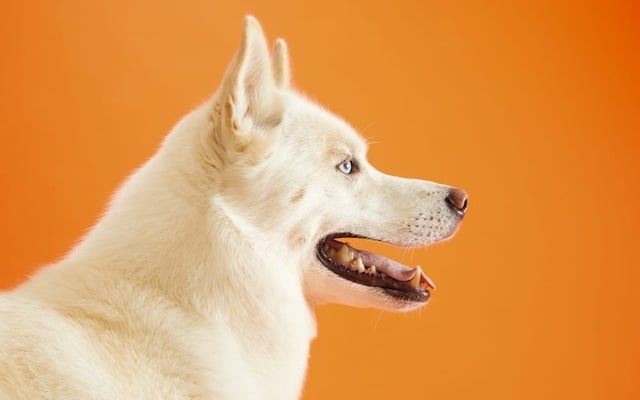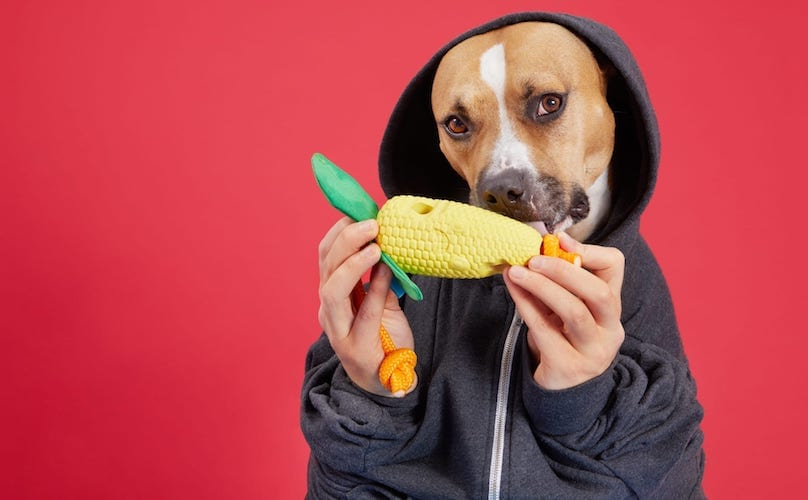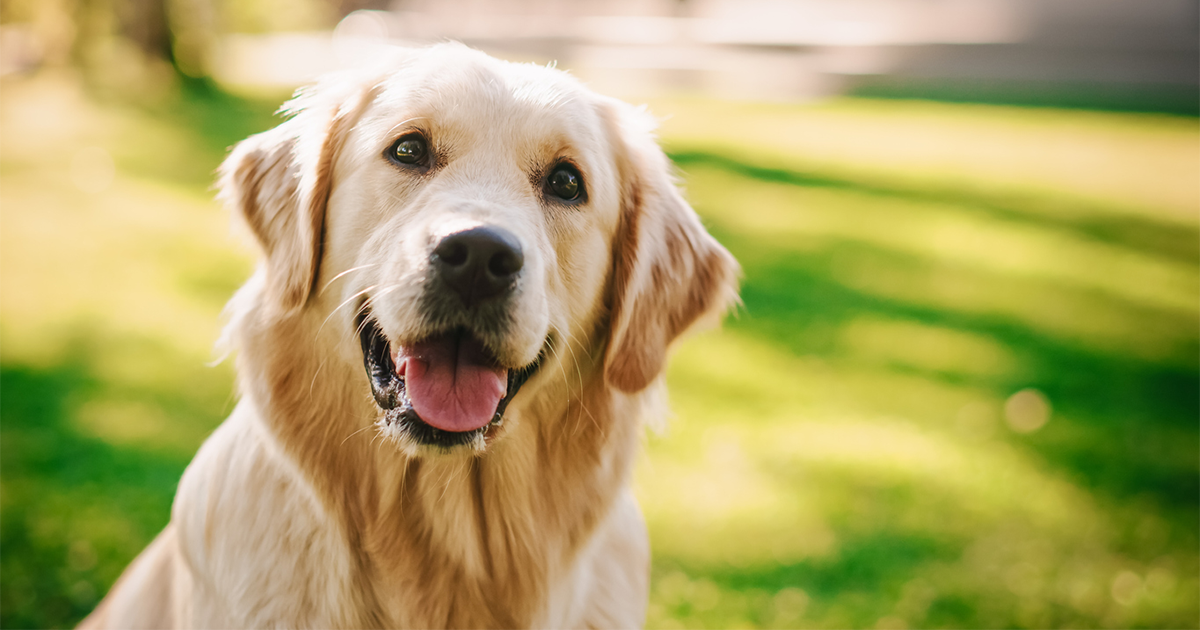Most everyone has snuck their pup a morsel or two from the kitchen table before. However, it’s vital to remember that some foods are bad—or even fatal—for dogs. In the same way that eating certain foods can cause discomfort, sickness, or allergic reactions in humans, our pooches also have a long list of foods to avoid. While not all these potentially toxic and dangerous foods might be lying around your kitchen, it’s important to know which ones to protect your hungry friend from. In the case of accidental consumption, you’ll also want to immediately consult with your vet or the ASPCA Animal Poison Control Center hotline at 888.426.4435.
Here is a list of foods that you should always avoid giving to your dog to eat:
Xylitol


It should go without saying that no dog should ever be given a stick of gum to chew on. But the dangerous artificial sweetener xylitol can be found in many more places, including candy, processed cookies and other baked goods, and even toothpaste. Dogs that have been poisoned with xylitol may display signs like lethargy, vomiting, and even seizures. Why? Unfortunately, xylitol can cause insulin spikes in dogs and other animals, leading to hypoglycemia and even liver failure. It’s safe to say that every dog owner should keep any products with sugar substitutes like xylitol up high and/or tucked away in a pantry or cupboard.
Caffeine
Another no brainer “no-no” for dogs is coffee, tea, soda, and any other food containing caffeine. The substance can cause stomach problems, like vomiting and diarrhea, as well as lead to excessive thirst, hyperactivity, heart palpitations, tremors, and seizures. Therefore, leaving a half-finished cappuccino on the coffee table after you leave for work is never a good idea. But remember that caffeine sometimes appears in less obvious places, like supplements, energy bars, migraine medications, and, of course, chocolate-covered espresso beans. Keep an eye out for these products if you have a dog that tends to get into what he shouldn’t.
Chocolate
Most people know the rule about chocolate and dogs: they don’t mix. The problem lies in the alkaloid named theobromine, which is present in all chocolate, including white chocolate. It can have similar effects to caffeine in dogs, including vomiting and diarrhea, heart problems, seizures, and even death. Theobromine is present in much higher quantities in dark chocolate and baking chocolate, but it’s best to keep chocolate of any kind tucked away in a drawer, cabinet, or pantry. Hint: Make sure to monitor young kids with hot cocoa or chocolate milk in the presence of dogs!
Onions And Garlic


Onions and garlic are amazing additions to a variety of cuisines. Sadly, these foods can kill your dog’s red blood cells, thus causing anemia. A dog suffering from anemia may demonstrate weakness, trouble breathing, and vomiting. Although this level of poisoning will likely only occur in high quantities, remember that a few bites of onion and garlic-laden food could also upset your pup’s tummy. Whether it’s raw, cooked, powdered, or dehydrated, keep it away from your dog’s food bowl.
Grapes And Raisins
While your dog may enjoy a bit of apple from time to time (just watch out for the poisonous apple seeds!), grapes and raisins should always be off-limits. For not entirely understood reasons, grapes are capable of causing kidney failure in dogs. Even a small amount can cause excessive vomiting and weakness. Therefore, leave that bowl of fresh grapes or box of raisins tucked away, safe from curious canines.
Alcohol
Here’s a simple rule: if it’s dangerous for you, it’s probably dangerous for your dog too. That said, alcohol can affect dogs much more quickly and intensely than it does humans. Vomiting, diarrhea, confusion, and breathing problems are a good indicator of alcohol consumption. Unfortunately, coma or even death are possible outcomes. Thus, beer, wine, spirits, and even other alcoholic beverages should be kept up away from dogs. Any food that was cooked with alcohol should also be served to humans only. In addition, for more reasons than one, make sure to monitor your pup at parties.
Dairy Products


Although not as dangerous as a glass of red wine or a bar of chocolate, an ice cream cone, slice of cheese, or other milk-based product can cause your pup some massive stomach upset. Additionally, many dogs are allergic to milk. While it may seem fun to share a pint of vanilla on a hot day, dogs who indulge in dairy may end up with very itchy or even swollen skin. Instead, check your local gourmet pet store or ice cream parlor for dog-friendly flavors. Although it should be a rare indulgence, doggie “ice cream” has become a trend!
Macadamia Nuts
Humans aren’t the only species that have a bad allergy track record with nuts. Macadamia nuts in particular can affect the health of your dog, leading to a potential fatal reaction. Whether raw or roasted, dogs who consume even a small amount of them can experience vomiting, fever, weakness, and tremors. Given that macadamia nuts are often paired with chocolate, the adverse reaction could even lead to death. Although peanut butter can be a good treat for dogs in moderation, in general, it’s best to keep your little nut away from high-fat and pancreatitis causing almonds, pecans, and other varieties.
Fruits With Pits And Large Seeds
Persimmons, peaches, plums, mangoes, and avocados can spell trouble for dogs in the name of seeds and pits. (Also, yes, avocados are fruits!) Accidentally consuming the non-edible parts of these foods can lead to intestinal blockage, choking, or even poisoning from cyanide, which is present in many fruit seeds and pits. Avocado can also cause further damage. Although it’s mostly a risk for other animals like birds and horses, the delicious green fruit can potentially trigger stomach upset or an allergic reaction. When in doubt, stick to vet-approved supplements to add to your dog’s regular food.
Salt And Sugar


It’s well-known that, over time, salt and sugar can cause major health problems in people. Those same issues can manifest in your dog, except much more severely and quickly. The effects of too much salt and sugar not only include diabetes and obesity—overconsumption can also lead to heart problems, stomach problems, tooth decay, seizures, and death. Yes, it can be tempting to sneak your dog a pretzel or piece of cookie. In the long run, though, your pup will be much happier if you don’t.
Yeast Dough
If you’ve ever watched bread rise, you know that in the right environment, yeast can grow fast. If your dog gets ahold of raw dough, the situation can quickly turn into an emergency. A warm stomach is the perfect place for those little microorganisms to expand, thus stretching or even twisting your dog’s tummy. This is not only painful; the situation can worsen if the yeast starts to ferment and turn to alcohol. Given that baking soda and baking powder are also highly toxic for dogs, it might just be best to keep your dog out of the kitchen when baking.
Leftover Bones
The leftover bones from cooked or uncooked meat can be dangerous in two ways. First off, the fat trimmings often left on the edges can lead to pancreatitis, even in small amounts. (Not to mention obesity and other weight-related issues!) Secondly, the bones themselves can splinter, thus causing cuts to your pup’s digestive system. Bones can also be choking hazards, even for large dogs. Thus, while it’s tempting to throw a bone your dog’s way here and there, invest in a pack of healthy dog chews instead.
So What The Heck Can My Dog Eat?


When in doubt, sticking with foods specifically intended for dogs will help prevent allergic reactions, stomach upset, or worse.
With that in mind – does your dog like dog treats? Uh, yeah, they do! (Probably.) So check out BarkShop’s plentiful options.
What about chews? BarkShop has a wide range of all-natural meaty chews to (excuse us) chews from.
And of course, you could always subscribe to BarkBox for a monthly subscription of 2 cool dog toys, 2 bags of delicious treats (all natural and made in North America), and 1 meaty chew – and for as little as $21, too!
Best of all, none of these treats or chews are liable to leave your pup ill in the aftermath! Unless you overfeed them. So, uhm, don’t do that. But otherwise, enjoy!







